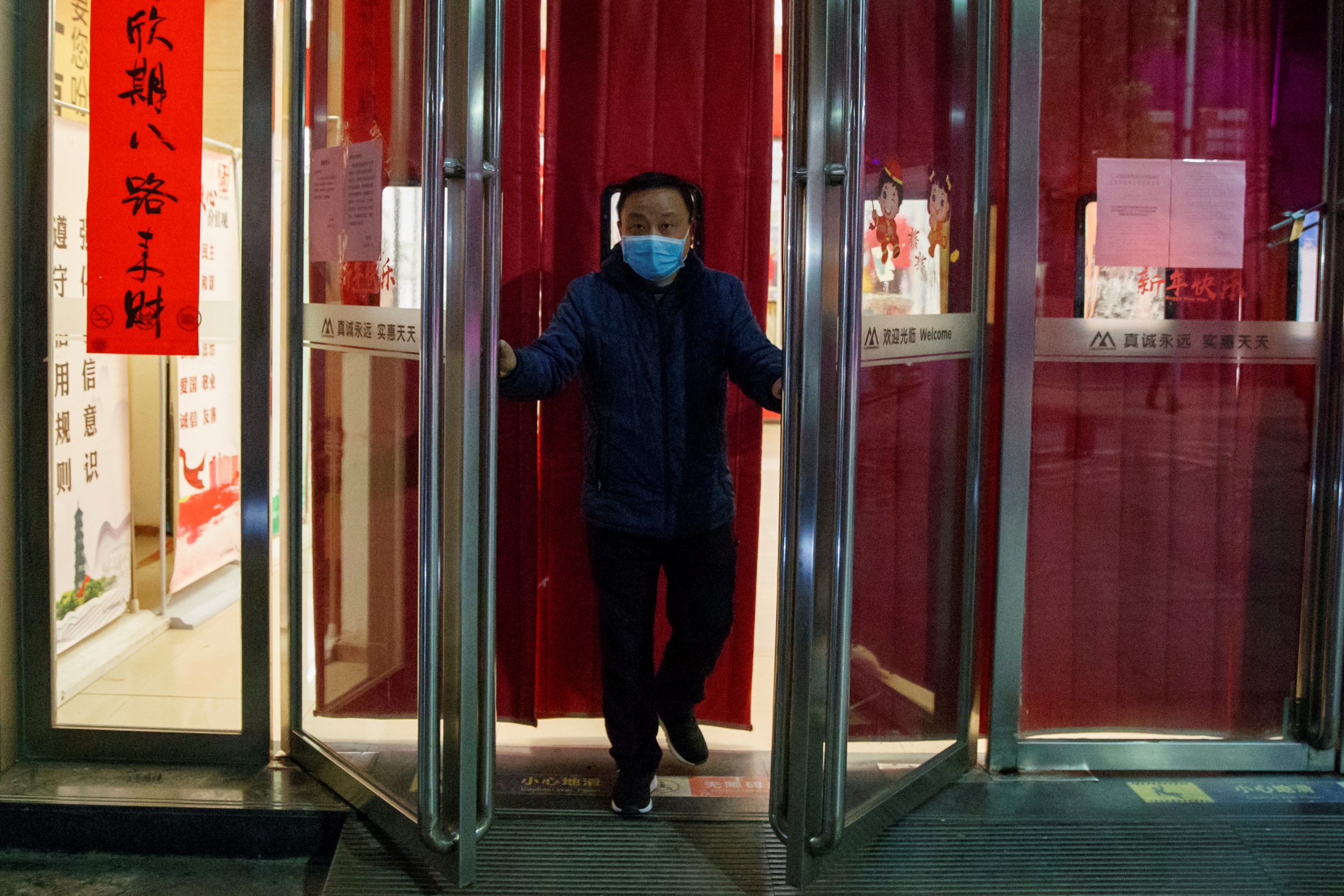China ramped up measures to contain the coronavirus epidemic and shore up an economy hit by travel curbs and business shut-downs on Sunday as the first death from the illness was reported outside the country.
A 44-year-old Chinese man from the central city of Wuhan, the epicenter of the epidemic, traveled to the Philippines and died on Saturday in a hospital in Manila, the Philippines Department of Health said.
Some 304 people have died in China, the country’s National Health Commission said on Sunday. Infections in China jumped to 14,380 as of Saturday, after their biggest daily rise, the commission added.
At least another 171 cases have been reported in more than two dozen other countries and regions, including the United States, Japan, Thailand, Hong Kong and Britain.
Beijing is facing mounting isolation as the countries introduce travel restrictions, airlines suspend flights and governments evacuate their citizens, risking worsening a slowdown in the world’s second-largest economy.
China’s central bank said it would inject a hefty 1.2 trillion yuan ($173.8 billion) worth of liquidity into the markets via reverse repo operations on Monday as the country prepares to reopen its stock markets after an extended Lunar New Year holiday.
Authorities have pledged to use various monetary policy tools to ensure liquidity remains reasonably ample and to support struggling firms.
China Evergrande Group, the nation’s third-largest property developer, said in an internal note on Sunday it would extend its Lunar New Year holiday to Feb. 16, and suspend construction work at all of its 1,246 sites until Feb. 20.
In Beijing, some malls stayed open, but staff stood outside offering to take customers’ temperatures. Many other shops and cafes in the capital chose to close.
“We can’t work and have no income. I would rather work than stay at home and do nothing,” said 32-year-old restaurant worker Wu Caixia in the capital.
TRAVEL BANS, EVACUATIONS
Authorities have effectively quarantined Wuhan and the surrounding Hubei province, sealing off roads and shutting down public transport.
Wuhan – where the virus is thought to have emerged late last year in a market illegally trading wildlife – was about to open two new hospitals for virus patients, state broadcaster CCTV and Xinhua news agency reported. One of the facilities was built in eight days, they added.
The virus have disrupted a string of sporting events across China. Organizers of the all-electric Formula E series said on Sunday they had abandoned plans for a race in the city of Sanya next month.
The Chinese data on the numbers of infections and deaths suggests the new coronavirus is less deadly than the 2002-03 outbreak of Severe Acute Respiratory Syndrome (SARS), which killed nearly 800 people of the some 8,000 it infected, although such numbers can evolve rapidly.
The World Health Organization has declared the outbreak a public health emergency of international concern, but said global trade and travel restrictions are not needed.
However, a string of countries have ramped up border controls. Singapore and the United States announced measures on Friday to ban foreign nationals who have recently been to China from entering their territories, and Australia followed suit on Saturday.
Russia introduced visa restrictions and will start evacuating Russian citizens on Monday and Tuesday, Interfax and TASS news agencies reported.
The Philippines expanded its travel ban to include all foreigners coming from China, widening an earlier restriction that covered only those from Hubei province. Indonesia also barred visitors who have been in China for 14 days.
More than 100 Germans and family members landed in Frankfurt on Saturday after being evacuated from Wuhan. Around 250 Indonesians were also evacuated from Hubei.
Japan plans to send another chartered plane mid-week or later to bring back Japanese nationals who are still in Hubei, its foreign ministry said on Sunday.
Japan has barred foreigners who have been in Hubei from entering the country. South Korea will impose a similar entry ban from Tuesday, South Korean Prime Minister Chung Sye-kyun said.
For a graphic comparing coronavirus outbreaks, see https://tmsnrt.rs/2GK6YVK
(Reporting by Lusha Zhang and Ryan Woo; Additional reporting by Yilei Sun, Leng Cheng and Brenda Goh in Shanghai, Martin Pollard in Jiujiang, Roxanne Liu and Pei Li in Beijing and Clare Jim in Hong Kong and Agustinus Beo Da Costa and Gayatri Suroyo in Jakarta; Writing by Lincoln Feast and Andrew Heavens; Editing by Christopher Cushing and Frances Kerry)

























 Continue with Google
Continue with Google